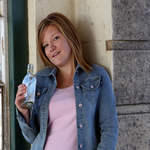Preventing teenage alcohol use is a top priority in the United States. The long term risks of heavy alcohol use during the teenage years are great, which is why millions of dollars are spent on youth alcohol prevention campaigns each year. Yet, despite the best efforts and good intentions of such campaigns, teenagers still consume alcohol at alarming rates.
For some teens, alcohol use is a weekend occurrence, and in many cases is considered to be a relatively benign practice. However, there is a fine line between casual and problematic alcohol consumption—a division that can be crossed easily. A significant percentage of American teens engage in the practice of binge drinking, a form of heavy alcohol use that has long been associated with negative outcomes—including the development of an addiction to alcohol.
Part of the reason that teen alcohol prevention efforts have limited success is due to the fact that they are aimed at all adolescents. It would be a vital tool if teens who were more at risk of using alcohol could be identified. This would allow for targeted campaigns that may bear more fruit. It turns out that such a resource may not be that far away.
New research suggests that we may be able to predict which adolescents (12 to 14-years old) will initiate alcohol use down the road around the age of 18, ScienceDaily reports. The researchers compiled data on 137 healthy adolescents through the Youth at Risk study, all of which had not used drugs or alcohol. By looking at a number of different variables, researchers were able to predict with astonishing accuracy, who would go on to drink alcohol.
The factors include:
- Demographics
- Cognitive Functioning
- Brain Features
The researchers found that those who were male and came from a higher socioeconomic strata were more likely to initiate alcohol use, according to the article. They also found that those who performed unsatisfactorily on tests of executive functioning were more likely to drink as well.
“We were able to predict, with 74 percent accuracy, which 12- to 14-year-old youth eventually went on to engage in alcohol use by late adolescence,” said Lindsay Squeglia, assistant professor in the department of psychiatry and behavioral sciences at the Medical University of South Carolina.


